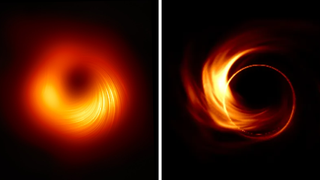“Delving Deeper into the Mysteries at the Edge of the Universe
A groundbreaking discovery has emerged from the collaborative efforts of researchers at the University of Waterloo and the University of British Columbia: a potential “cosmic glitch” in the universe’s gravity, shedding light on its perplexing behavior on a cosmic scale.
For a century, physicists have relied on Albert Einstein’s theory of “general relativity” to elucidate the workings of gravity across the cosmos. This theory, validated by numerous tests and observations, posits that gravity influences not only the three physical dimensions but also the fourth dimension: time.
Robin Wen, lead author and recent graduate in Mathematical Physics from Waterloo, remarks, “This gravitational model has been indispensable, guiding everything from conceptualizing the Big Bang to capturing images of black holes.”
Challenges on a Cosmic Scale
“However, when we endeavor to comprehend gravity on a cosmic magnitude – spanning galaxy clusters and beyond – we encounter apparent deviations from the predictions of general relativity,” explains Wen. “It’s as if gravity itself deviates slightly from Einstein’s theory, particularly at distances measured in billions of light-years. We’ve termed this deviation a ‘cosmic glitch,’ where gravity appears to weaken by around one percent.”
Over the past two decades, physicists and astronomers have sought to devise a mathematical framework that reconciles these apparent inconsistencies within the framework of general relativity. Much of this pioneering work has unfolded at Waterloo, renowned for its pioneering gravitational research stemming from ongoing interdisciplinary collaborations between applied mathematicians and astrophysicists.
Placing the Findings in Historical Context
“Nearly a century ago, astronomers made the groundbreaking revelation that our universe is expanding,” notes Niayesh Afshordi, an astrophysics professor at Waterloo and a researcher at the Perimeter Institute. “As galaxies recede into the distance, their velocities increase, approaching the cosmic speed limit set by Einstein’s theory. Our discovery suggests that even at these immense scales, Einstein’s theory may not provide a complete picture.”
Revolutionizing Einstein’s Theory
The research team’s novel model of a “cosmic glitch” entails modifying and extending Einstein’s mathematical equations to reconcile the discrepancies observed in certain cosmological measurements, while preserving the successful applications of general relativity.
“It’s akin to appending a footnote to Einstein’s theory,” muses Wen. “Once we venture into cosmic realms, additional considerations come into play.”
Afshordi adds, “This innovative model could serve as the initial puzzle piece in unraveling a cosmic enigma spanning both space and time.”
The findings of this study, titled “A cosmic glitch in gravity,” have been published in the Journal of Cosmology and Astroparticle Physics.
Reference: “A cosmic glitch in gravity” by Robin Y. Wen, Lukas T. Hergt, Niayesh Afshordi, and Douglas Scott, 20 March 2024, Journal of Cosmology and Astroparticle Physics.”















































